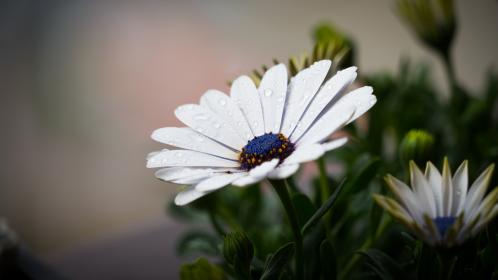Happy Moltmann Monday, all! Today’s selection comes from The Living God and the Fullness of Life in a section on the doctrine of suffering in Buddhism and the doctrine of love in Paul’s letters.
Love is the name we give the most intense experience of life. Human beings as we know them hunger for love and die of lovelessness… If desire is the essence of the human being, that presupposes an experience of emptiness and a love for the fullness of life…
Christianity has linked this experience of love with the experience of God: “Where love rejoices, there is God.” That deepens both the emptiness of the heart and the fullness of life. The unending God awakens in the human being God’s image, an emptiness that nothing finite or transitory can fill–nothing but the unending God alone. In what Johann Baptist Metz calls the “missing of God,” the human being reaches out beyond everything and strives for infinity. That is the wandering of God’s people in their search for God.
I want to pause here a moment, mostly because Christianity has the bad habit of not pausing at all within this tension between our longing for the infinite and our experience of the finite. We want to say that we bridge it somehow, that God fills us in such a way that our emptiness disappears. And in some moments, in some experiences, even in some seasons of life, for some people this is true. But it is never true of any of us all of the time. The emptiness remains, the longing for fullness also remains. I believe this is where we are called to live, not denying either reality but experiencing both all the time, because missing God is the feeling of deep faith. The practice of deep faith is living in such a way that our longing for God becomes manifest in our actions, rather than pulling us away from the reality around us. We miss God. Because we experience this emptiness, we live toward the fullness of life. We seek it out, and practice it, right in the midst of our longing.
Moltmann continues by comparing this emptiness/fullness to the Buddhist tradition of not knowing, of the Bodhisattva who turns around before reaching the goal because the journey toward the goal is the practice itself, is the breeding ground of compassion. He writes,
The selfless compassion with the suffering is a virtue that can go hand in hand with the extinction of the selfish desire for life…
And then he compares this to 1 Corinthians 13, Paul’s famous love chapter, which he writes to a church community so self-focused that they have forgotten the most basic right action of all– to love. He writes,
It is the divine power of love that lifts people out of themselves and lets them forget their own ego. People are only concerned about themselves when they are frightened. But there is no fear in love… In the love I experience and in the love I give, the hunger for recognition–that is, the recognition of my achievements–and the greed for money and possessions disappear. In the flood of love, the whole joy of God is with us. That is why Paul is right when he says that without love the best human gifts and achievements, the most elevated religious feelings, and the wisest knowledge remain empty–‘a noisy gong or a clanging cymbal.’
Love frees us from selfishness. Well, if it’s true love, it does. Some people call something love when it is really bartering. It’s a quid pro quo: I give you this, but only because then I can demand that you give me this in return. That is still selfishness, a wolf in love’s clothes. True love frees us to be both for ourselves and for others at the same time.
Which is why I spent a good deal of time pondering this gem of a sentence: People are only concerned about themselves when they are frightened. Is that really true? I scanned over the times and situations in which I feel frightened, or threatened, and noticed that I do tend to turn defensive, and therefore selfish, in those moments. The bridges go up, no one can cross. I do not think this helps me, and I do not think it helps anyone on the other side of the bridge, either. But when I am feeling most filled with love, I do not find that I think of myself directly at all. In the moment, it is only my love for the other that guides my actions. And yet, there is integrity there, congruence. I lived into my best self, even when (and maybe because) I wasn’t thinking intentionally of myself at all.
Noisy gongs and silently faithful people of love. We are both, every day. We are empty, and we are full. But I wonder if we took a moment the next time we feel threatened or frightened to rest again in love how our responses might change, and how we may find ourselves filled with compassion rather than defensiveness, with the whole joy of God, as Moltmann so beautifully put it.
Love frees us. And love is what allows us to live within the ever-present tension of emptiness and fullness, that our hearts may be turned toward compassion. And in that compassion, we find whole joy.

Add Your Voice!